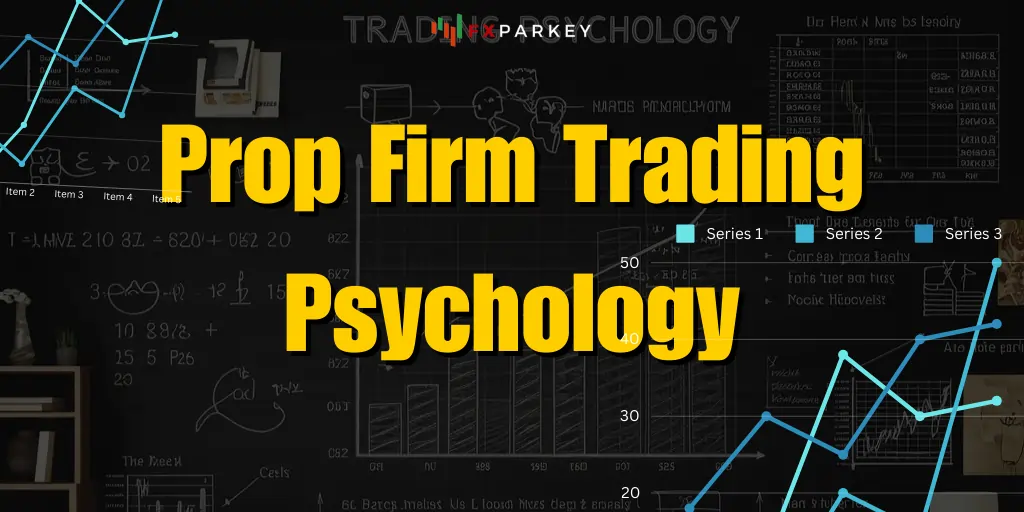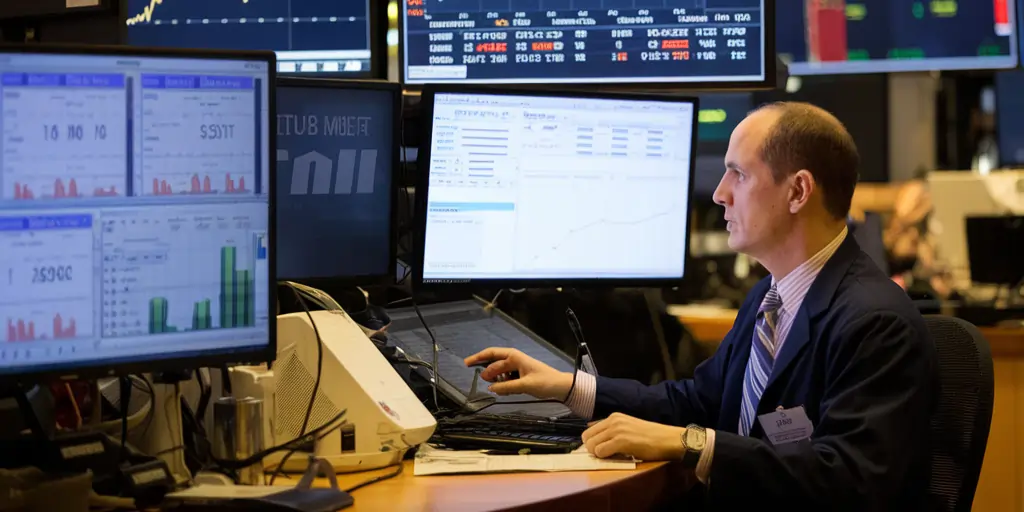
Hey there, fellow trader! Let's talk about something that's just as important as your market knowledge and technical skills when it comes to crushing it in the world of prop trading: your mindset! That's right, we're diving into the fascinating realm of Prop Firm Trading Psychology, A trading can be stressful and emotional. But with the right mindset, you can:
You see, prop trading is a high-stakes game where the pressure can be intense, and emotions can run high. It's not just about what you know, it's also about how you handle the mental challenges that come with the territory. That's where mastering your mental game comes into play.
Picture this: you're calm, cool, and collected, no matter what the market throws at you. That's what happens when you've got a rock-solid trading mindset!
So, buckle up and get ready to take your trading game to the next level! We're about to embark on a journey that will help you master your mind and conquer the markets like a true prop trading pro. Let's do this!
💁♂️ Understanding Prop Firm Trading Psychology
In prop firms, traders need to be masters of their own minds. They have to navigate a minefield of emotions and mental states that can easily throw off their decision-making process. It's not just about having the right market knowledge or technical skills; it's about being able to keep a cool head under pressure and make rational decisions even when the stakes are high.

So, what are some of the key aspects of trading psychology that prop traders need to be aware of?
Let's break it down:
🧠 Trading Psychology Hacks | Stay Calm, Stay Profitable

1. Emotional Awareness
Emotional awareness allows traders to think more clearly and avoid quick choices made because of fear, greed, or other strong emotions. Traders should practice self-awareness and learn to identify their emotional states, such as fear, greed, or frustration. By recognizing these emotions, traders can prevent them from influencing their decision-making process.
Useful methods for developing emotional awareness are:
2. Setting Realistic Goals
Setting realistic trading objectives is vital for sustained motivation and minimizing frustration. Traders should set both short-term and long-term goals that are specific, measurable, and aligned with their overall trading strategy. Realistic goal-setting helps traders stay focused and prevents them from engaging in impulsive or reckless trading behavior.
When setting goals, traders should consider: -Their current skill level and experience
3. Building And Sticking To Well-Structured Trading Plans
Effective trading requires a robust plan to manage mental and emotional hurdles. The plan should include well-defined strategies, risk management rules, and clear entry and exit points. By sticking to a trading plan, traders can
maintain discipline and avoid making emotional decisions based on short-term market fluctuations.
Essential features of a well-structured trading approach:
4. Practicing Mindfulness and Stress Reduction
Mindfulness techniques, such as meditation and deep breathing exercises, can help traders reduce mental stress and improve focus. By practicing mindfulness, traders can develop a greater sense of self-awareness and learn to observe their thoughts and emotions without judgment. This allows them to make more rational decisions and stay focused on the present moment.
Effective stress reduction techniques for traders include:
5. Taking Regular Breaks
Trading can be mentally and emotionally taxing, making regular breaks essential for maintaining clarity and reducing fatigue. Traders should step away from their screens periodically to rest their eyes, stretch, and engage in brief relaxation exercises. Taking breaks helps traders return to their desks with a fresh perspective and renewed focus.
Strategies for incorporating breaks into a trading routine include:
Prop traders face distinct psychological challenges compared to retail traders or institutional investors. These include:
Common Psychological Pitfalls in Prop Trading

Understanding and avoiding common psychological traps is essential for prop traders. Here are some of the most prevalent issues:
| Psychological Pitfall | Description | Impact on trading |
|---|---|---|
| Fear of missing out (FOMO) | Entering trades impulsively due to anxiety about missed opportunities | Over-trading, increased risk exposure |
| Revenge trading | Attempting to recover losses quickly through aggressive trades | Deviation from strategy amplified losses |
| Overconfidence | Overestimating one's abilities and underestimating risks | Excessive risk-taking, neglecting proper analysis |
| Analysis paralysis | Overthinking decisions leads to inaction | Missed opportunities, reduced trading frequency |
| Confirmation bias | Seeking information that confirms preexisting beliefs | Ignoring contrary evidence, flawed decision-making |
Trade with Confidence | The Best Psychological Tools
Level Up Your Trading Game with the Best Mindset Tools
1. Performance Tracking and Analysis
2. Simulation and Paper Trading
3. Mentor ship and Peer Support
4. Continuous Education
🏆 Developing a Winning Mindset for Prop Trading
Here are key strategies to develop a winning mindset:
1. Emotional Regulation
Prop traders must learn to manage their emotions effectively, especially during periods of market volatility or personal drawdowns.
Techniques for emotional regulation include:
2. Risk Management and Discipline
3. Developing a Growth Mindset
Adopting a growth mindset allows traders to view challenges and setbacks as opportunities for learning and improvement.
This approach involves:
4. Building Resilience
Resilience is crucial for prop traders to bounce back from losses and maintain consistent performance.
Strategies to build resilience include:
👉 From Anxiety to Action | Overcoming Trading Obstacles
1. Dealing with Losses
Developing a pre-defined plan for managing losses, including stop-loss levels and maximum draw-down limits Practicing emotional detachment from individual trade outcomes and focusing on the overall process Viewing losses as an inevitable part of trading and an opportunity for learning and growth
2. Managing Overconfidence
Regularly assessing and adjusting risk levels based on market conditions and personal performance Seeking out diverse perspectives and opposing viewpoints to challenge one's own beliefs Maintaining a humble and open-minded approach to trading, recognizing that the market is always changing.
3. Coping with Market Volatility
Developing a flexible trading plan that accounts for different market conditions and scenarios Adjusting position sizes and risk levels during periods of heightened volatility.
👉 Adapting to Different Challenge Phases

Different phases of prop firm challenges may require adjustments in psychological approach:
| Challenge phase | Psychological force |
|---|---|
| Initial Evaluation | Building confidence, managing expectations |
| Intermediate Stage | Maintaining consistency, avoiding complacency |
| Final Push | Balancing aggression with risk management |
| Funded Account | Transitioning mindset from evaluation to long-term performance |
The Importance of Self-Awareness and Reflection
Developing self-awareness is a critical component of mastering trading psychology. By regularly reflecting on their thoughts, emotions, and behaviors, traders can gain valuable insights into their strengths, weaknesses, and areas for improvement.
Some effective practices for cultivating self-awareness include:
Proven methods for achieving a sustainable work-life balance:
Curious Minds Wants To Know | FAQs
What are some key aspects of trading psychology in prop firms?
Key aspects of trading psychology in prop firms include emotional control, risk management, discipline, and consistency, handling pressure and stress, adapting to market volatility, and overcoming biases and cognitive errors.
How can prop traders develop emotional awareness?
Prop traders can develop emotional awareness by keeping a trading journal, practicing mindfulness and meditation, and regularly assessing their emotional state before, during, and after trading sessions.
Why is setting realistic goals important for prop traders?
Setting realistic goals is vital for sustained motivation and minimizing frustration. It helps traders stay focused and prevents them from engaging in impulsive or reckless trading behavior.
What are some common psychological pitfalls in prop trading?
Common psychological pitfalls in prop trading include fear of missing out (FOMO), revenge trading, overconfidence, analysis paralysis, and confirmation bias.
How can prop traders build resilience?
Prop traders can build resilience by developing a strong support network, practicing self-compassion, maintaining perspective on long-term goals, and engaging in stress reduction activities outside of trading hours.
Is mastering trading psychology a one-time achievement?
No, mastering trading psychology is an ongoing process that requires dedication, self-awareness, and continuous improvement. Prop traders must remain committed to self-improvement and stay adaptable in the face of changing market conditions.
Conclusion | The Ongoing Journey of Psychological Development

Mastering trading psychology is an ongoing process that requires dedication, self-awareness, and continuous improvement. For prop traders, the psychological aspect of trading is often the differentiating factor between success and failure. By understanding the unique challenges of prop trading, developing a robust psychological framework, and utilizing targeted strategies and tools, traders can enhance their mental game and improve their chances of long-term success in the competitive world of proprietary trading.
Remember that every trader's psychological journey is unique, and what works for one may not work for another. The key is to remain committed to self-improvement, stay adaptable in the face of changing market conditions, and maintain a balanced perspective on the role of trading in one's overall life and well-being. With the right mindset and psychological tools, prop traders can navigate the complexities of the financial markets with greater confidence, discipline, and ultimately, success.






